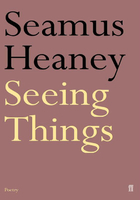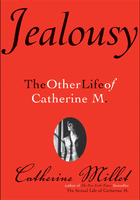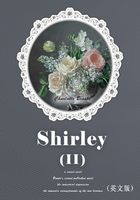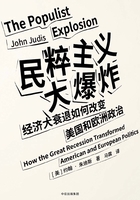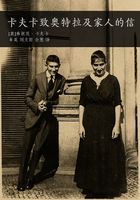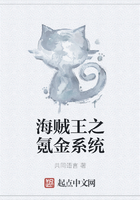It was not long, you may be sure, before we had a second conference upon the same subject; when, as if she had been willing to forget the story she had told me of herself, or to suppose that I had forgot some of the particulars, she began to tell them with alterations and omissions; but I refreshed her memory and set her to rights in many things which I supposed she had forgot, and then came in so opportunely with the whole history, that it was impossible for her to go from it; and then she fell into her rhapsodies again, and exclamations at the severity of her misfortunes. When these things were a little over with her, we fell into a close debate about what should be first done before we gave an account of the matter to my husband. But to what purpose could be all our consultations? We could neither of us see our way through it, nor see how it could be safe to open such a scene to him. It was impossible to make any judgment, or give any guess at what temper he would receive it in, or what measures he would take upon it; and if he should have so little government of himself as to make it public, we easily foresaw that it would be the ruin of the whole family, and expose my mother and me to the last degree; and if at last he should take the advantage the law would give him, he might put me away with disdain and leave me to sue for the little portion that I had, and perhaps waste it all in the suit, and then be a beggar; the children would be ruined too, having no legal claim to any of his effects; and thus I should see him, perhaps, in the arms of another wife in a few months, and be myself the most miserable creature alive.
My mother was as sensible of this as I; and, upon the whole, we knew not what to do. After some time we came to more sober resolutions, but then it was with this misfortune too, that my mother's opinion and mine were quite different from one another, and indeed inconsistent with one another; for my mother's opinion was, that I should bury the whole thing entirely, and continue to live with him as my husband till some other event should make the discovery of it more convenient; and that in the meantime she would endeavour to reconcile us together again, and restore our mutual comfort and family peace; that we might lie as we used to do together, and so let the whole matter remain a secret as close as death. 'For, child,' says she, 'we are both undone if it comes out.'
To encourage me to this, she promised to make me easy in my circumstances, as far as she was able, and to leave me what she could at her death, secured for me separately from my husband; so that if it should come out afterwards, I should not be left destitute, but be able to stand on my own feet and procure justice from him.
This proposal did not agree at all with my judgment of the thing, though it was very fair and kind in my mother; but my thoughts ran quite another way.
As to keeping the thing in our own breasts, and letting it all remain as it was, I told her it was impossible; and I asked her how she could think I could bear the thoughts of lying with my own brother. In the next place, I told her that her being alive was the only support of the discovery, and that while she owned me for her child, and saw reason to be satisfied that I was so, nobody else would doubt it; but that if she should die before the discovery, I should be taken for an impudent creature that had forged such a thing to go away from my husband, or should be counted crazed and distracted. Then I told her how he had threatened already to put me into a madhouse, and what concern I had been in about it, and how that was the thing that drove me to the necessity of discovering it to her as I had done.
From all which I told her, that I had, on the most serious reflections I was able to make in the case, come to this resolution, which I hoped she would like, as a medium between both, viz. that she should use her endeavours with her son to give me leave to go to England, as I had desired, and to furnish me with a sufficient sum of money, either in goods along with me, or in bills for my support there, all along suggesting that he might one time or other think it proper to come over to me.
That when I was gone, she should then, in cold blood, and after first obliging him in the solemnest manner possible to secrecy, discover the case to him, doing it gradually, and as her own discretion should guide her, so that he might not be surprised with it, and fly out into any passions and excesses on my account, or on hers; and that she should concern herself to prevent his slighting the children, or marrying again, unless he had a certain account of my being dead.
This was my scheme, and my reasons were good; I was really alienated from him in the consequences of these things; indeed, I mortally hated him as a husband, and it was impossible to remove that riveted aversion I had to him. At the same time, it being an unlawful, incestuous living, added to that aversion, and though I had no great concern about it in point of conscience, yet everything added to make cohabiting with him the most nauseous thing to me in the world; and I think verily it was come to such a height, that I could almost as willingly have embraced a dog as have let him offer anything of that kind to me, for which reason I could not bear the thoughts of coming between the sheets with him. I cannot say that I was right in point of policy in carrying it such a length, while at the same time I did not resolve to discover the thing to him; but I am giving an account of what was, not of what ought or ought not to be.
In their directly opposite opinion to one another my mother and I continued a long time, and it was impossible to reconcile our judgments; many disputes we had about it, but we could never either of us yield our own, or bring over the other.
I insisted on my aversion to lying with my own brother, and she insisted upon its being impossible to bring him to consent to my going from him to England; and in this uncertainty we continued, not differing so as to quarrel, or anything like it, but so as not to be able to resolve what we should do to make up that terrible breach that was before us.
At last I resolved on a desperate course, and told my mother my resolution, viz. that, in short, I would tell him of it myself. My mother was frighted to the last degree at the very thoughts of it; but I bid her be easy, told her I would do it gradually and softly, and with all the art and good-humour I was mistress of, and time it also as well as I could, taking him in good-humour too. I told her I did not question but, if I could be hypocrite enough to feign more affection to him than I really had, I should succeed in all my design, and we might part by consent, and with a good agreement, for I might live him well enough for a brother, though I could not for a husband.
All this while he lay at my mother to find out, if possible, what was the meaning of that dreadful expression of mine, as he called it, which I mentioned before: namely, that I was not his lawful wife, nor my children his legal children. My mother put him off, told him she could bring me to no explanations, but found there was something that disturbed me very much, and she hoped she should get it out of me in time, and in the meantime recommended to him earnestly to use me more tenderly, and win me with his usual good carriage; told him of his terrifying and affrighting me with his threats of sending me to a madhouse, and the like, and advised him not to make a woman desperate on any account whatever.
He promised her to soften his behaviour, and bid her assure me that he loved me as well as ever, and that he had so such design as that of sending me to a madhouse, whatever he might say in his passion; also he desired my mother to use the same persuasions to me too, that our affections might be renewed, and we might lie together in a good understanding as we used to do.
I found the effects of this treaty presently. My husband's conduct was immediately altered, and he was quite another man to me; nothing could be kinder and more obliging than he was to me upon all occasions; and I could do no less than make some return to it, which I did as well as I could, but it was but in an awkward manner at best, for nothing was more frightful to me than his caresses, and the apprehensions of being with child again by him was ready to throw me into fits; and this made me see that there was an absolute necessity of breaking the case to him without any more delay, which, however, I did with all the caution and reserve imaginable.
He had continued his altered carriage to me near a month, and we began to live a new kind of life with one another; and could I have satisfied myself to have gone on with it, I believe it might have continued as long as we had continued alive together. One evening, as we were sitting and talking very friendly together under a little awning, which served as an arbour at the entrance from our house into the garden, he was in a very pleasant, agreeable humour, and said abundance of kind things to me relating to the pleasure of our present good agreement, and the disorders of our past breach, and what a satisfaction it was to him that we had room to hope we should never have any more of it.
I fetched a deep sigh, and told him there was nobody in the world could be more delighted than I was in the good agreement we had always kept up, or more afflicted with the breach of it, and should be so still; but I was sorry to tell him that there was an unhappy circumstance in our case, which lay too close to my heart, and which I knew not how to break to him, that rendered my part of it very miserable, and took from me all the comfort of the rest.
He importuned me to tell him what it was. I told him I could not tell how to do it; that while it was concealed from him I alone was unhappy, but if he knew it also, we should be both so; and that, therefore, to keep him in the dark about it was the kindest thing that I could do, and it was on that account alone that I kept a secret from him, the very keeping of which, I thought, would first or last be my destruction.
It is impossible to express his surprise at this relation, and the double importunity which he used with me to discover it to him. He told me I could not be called kind to him, nay, I could not be faithful to him if I concealed it from him. I told him I thought so too, and yet I could not do it. He went back to what I had said before to him, and told me he hoped it did not relate to what I had said in my passion, and that he had resolved to forget all that as the effect of a rash, provoked spirit. I told him I wished I could forget it all too, but that it was not to be done, the impression was too deep, and I could not do it: it was impossible.
He then told me he was resolved not to differ with me in anything, and that therefore he would importune me no more about it, resolving to acquiesce in whatever I did or said; only begged I should then agree, that whatever it was, it should no more interrupt our quiet and our mutual kindness.
This was the most provoking thing he could have said to me, for I really wanted his further importunities, that I might be prevailed with to bring out that which indeed it was like death to me to conceal; so I answered him plainly that I could not say I was glad not to be importuned, thought I could not tell how to comply. 'But come, my dear,' said I, 'what conditions will you make with me upon the opening this affair to you?'
'Any conditions in the world,' said he, 'that you can in reason desire of me.' 'Well,' said I, 'come, give it me under your hand, that if you do not find I am in any fault, or that I am willingly concerned in the causes of the misfortune that is to follow, you will not blame me, use me the worse, do my any injury, or make me be the sufferer for that which is not my fault.'
'That,' says he, 'is the most reasonable demand in the world: not to blame you for that which is not your fault. Give me a pen and ink,' says he; so I ran in and fetched a pen, ink, and paper, and he wrote the condition down in the very words I had proposed it, and signed it with his name. 'Well,' says he, 'what is next, my dear?'
'Why,' says I, 'the next is, that you will not blame me for not discovering the secret of it to you before I knew it.'
'Very just again,' says he; 'with all my heart'; so he wrote down that also, and signed it.



